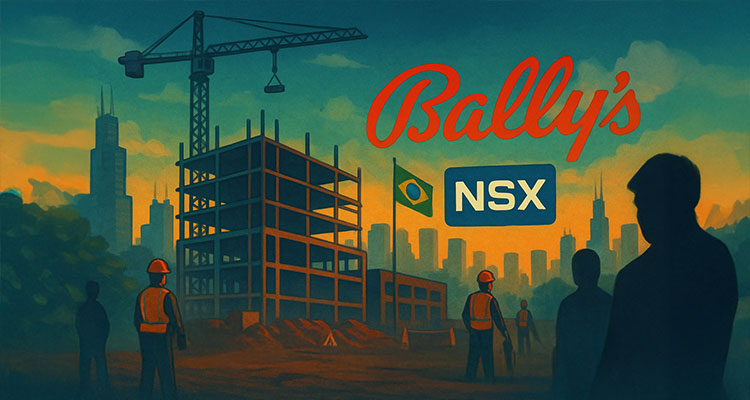Bally’s has restarted construction on its $1.7 billion casino development in Chicago’s River West neighborhood after a two-week shutdown mandated by the Illinois Gaming Board (IGB). The halt was triggered by the involvement of an unapproved waste disposal vendor previously linked to organized crime allegations.
The temporary work stoppage began on May 1, when the IGB determined that a subcontractor at the site had not gone through the required vetting process. Specifically, Melrose Park-based D&P Construction had been contracted to manage waste removal. The company’s presence raised red flags, as it had previously come under scrutiny for alleged connections to organized crime—a factor that contributed to the collapse of the Emerald Casino project in Rosemont two decades ago.
D&P’s dumpsters were removed from the River West location the day after the stoppage began. The waste services were originally arranged by the Chicago Community Builders Collective, the minority-led general contractor overseeing the build. Although D&P’s role cost Bally’s two weeks of construction time, it did not jeopardize the company’s license to proceed with what will be Illinois’ largest casino facility.
Regulatory Concerns Prompt Project Suspension
The Illinois Gaming Board initiated an immediate investigation into the vendor issue and subsequently issued the stop-work order. The agency noted that D&P had not been previously disclosed for approval, which is required under state law. “Presently, no vendors are working on the casino construction project without IGB approval,” the IGB said according to the Chicago Tribune. “Bally’s addressed the disclosure failures. It has disclosed, and assured the ongoing disclosure of, all proposed vendors to the IGB.”
The regulatory body also stressed that it continues to review the matter, even as work resumes under stricter oversight. Bally’s confirmed that it has revised its vendor review procedures in response to the incident and has reaffirmed its commitment to full transparency moving forward.
Soo Kim, Chairman of Bally’s, announced on Wednesday that the company had been cleared to resume activity. “We were informed today by IGB that construction on the Bally’s site will begin on Thursday, May 15th,” Kim said. “We appreciate the collaboration and support of IGB throughout this process and look forward to delivering this project to Chicago.”
Major Project Still on Track Despite Setback
Despite the interruption, Bally’s remains on course to complete the ambitious project, which is being constructed on the site of the former Chicago Tribune printing plant. The sprawling casino complex is slated to include a 500-room hotel, a 3,000-seat theater, an exhibition hall, 10 restaurants, and 4,000 gaming positions.
The Rhode Island-based gaming company was awarded the Chicago casino license in May 2022, beating out rival proposals from Hard Rock and Rivers Casino. Demolition of the old Freedom Center was completed earlier this year, and foundational work began in February with the installation of caissons. The company continues to aim for a grand opening in September 2026.
Current Operations and State Casino Landscape
While the permanent facility is under construction, Bally’s has been operating a temporary casino out of the Medinah Temple in River North since September 2023. Last month, that location generated $11 million in adjusted gross receipts, placing it fifth among Illinois’ 16 licensed casinos, according to Gaming Board figures.
Leading the state in revenue remains Rivers Casino Des Plaines, which posted $43.9 million in adjusted receipts in April. Wind Creek Chicago Southland, which opened its permanent 70,000-square-foot casino in East Hazel Crest in November, continues to grow, bringing in $17.1 million in April. The facility, owned by the Poarch Band of Creek Indians, recently expanded with the addition of a 255-room hotel.
Despite its recent regulatory hiccup, Bally’s continues to push forward with its plans to build what is expected to become the state’s most expansive casino destination, with support from state regulators and city officials.


